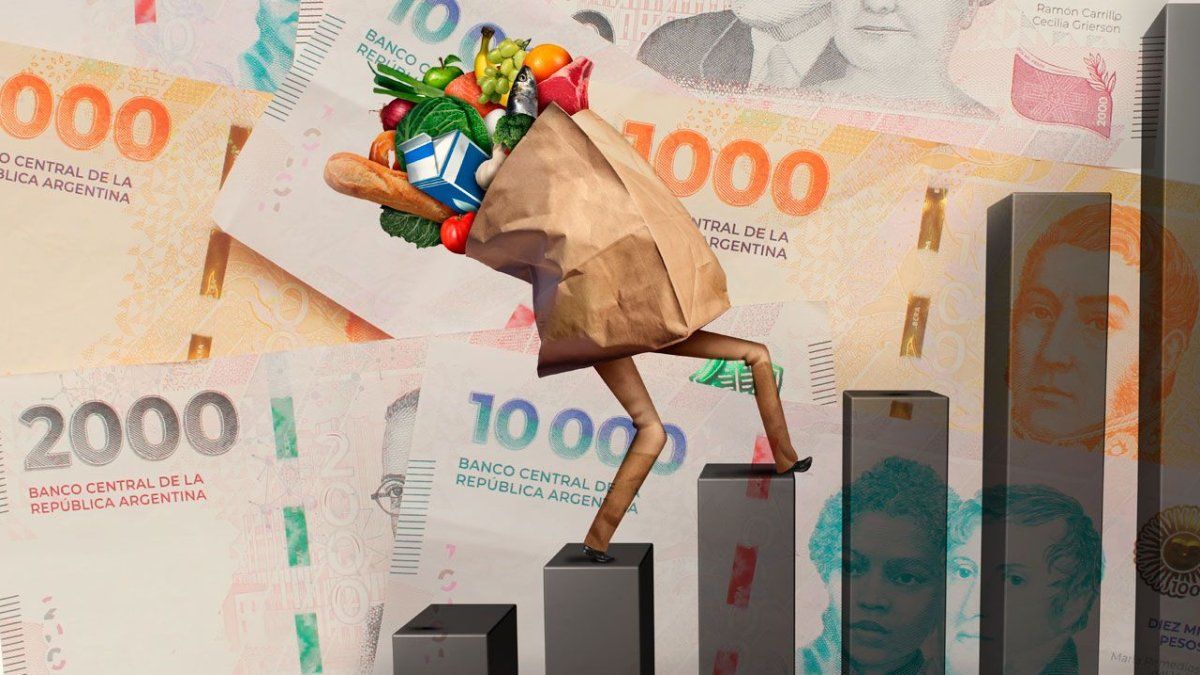The July inflation in the City of Buenos Aires (CABA) was 5.1%, above the June figure of 4.8%, According to the General Directorate of Statistics and Census (DGEyC). It is the first official price index that is released every month and is usually a preview of the national data published by the National Institute of Statistics and Census (INDEC). But this month’s data was quite discouraging, given that may not start with 3, as the Government hopes.
Month after month, the inflation data for Buenos Aires is usually a preview of how the national index published by INDEC could turn out. It usually gives 1 point below due to the different incidence that public services and goods have. at the national level and in the City, explains a specialized source.
“5.1% of the City of Buenos Aires may have a negative reading “If we take into account that the Government had been insisting that inflation in July could be quite low, they even anticipated that it could start with 3. Consequently, it is a rather discouraging figure, although it is likely that the data from the National Institute of Statistics and Census (INDEC) will be below that of Buenos Aires,” says the economist. Camilo Tiscorniadirector of CyT, to Scope.
City vs. INDEC: different weights and results
As Tiscornia explains, what happens is that The weighting structure of the City is different from that of INDEC for the national data. It even points out that the data on hotels and restaurants has a stronger impact on the basket in Buenos Aires than in the rest of the country.
This is confirmed Hernán Letcher, director of the Center for Political Economy of Argentina (CEPA), when he says: “While it is true that the effect of services in CABA is a little more sensitive than in the rest of the country, which suggests that the INDEC CPI should be lower, it is expected that the rest will not have significant variations between INDEC and CABA.”
The same thing is pointed out Sebastian Menescaldi, Economist at Eco Gowho indicates that “the city’s basket has a much higher share of services than goods, so, if the nation is compared to the city, it is compatible with 4% or slightly below in the general data for the Nation.”
The CPI could be far from the Government’s target
Meanwhile, Letcher points out that “an interesting fact is that the weights of CABA and INDEC are different and, If the CABA increases by item are applied to the INDEC weights, instead of 5.1% it gives 4.94%“.
“Assuming the same variations in goods and services, Based on INDEC weighting, GBA inflation would be 4.6%“, the economist estimated Salvador Vitelli.
There are consulting firms that place it at around 3.7%, but there are other estimates that are far above 4%. and the Market Expectations Survey (REM) published by the Central Bank showed an average level of 3.9%.
In the same sense, Tiscornia maintains that “we do not know how much the INDEC will give, but The expectation that it will be below 4%, as was said, is a bit far away with this data in CABA“. And he points out that, in CyT, “we have 4.4% for GBA, a little above the expectation that was generated for the national data.”
Source: Ambito
I am a 24-year-old writer and journalist who has been working in the news industry for the past two years. I write primarily about market news, so if you’re looking for insights into what’s going on in the stock market or economic indicators, you’ve come to the right place. I also dabble in writing articles on lifestyle trends and pop culture news.




